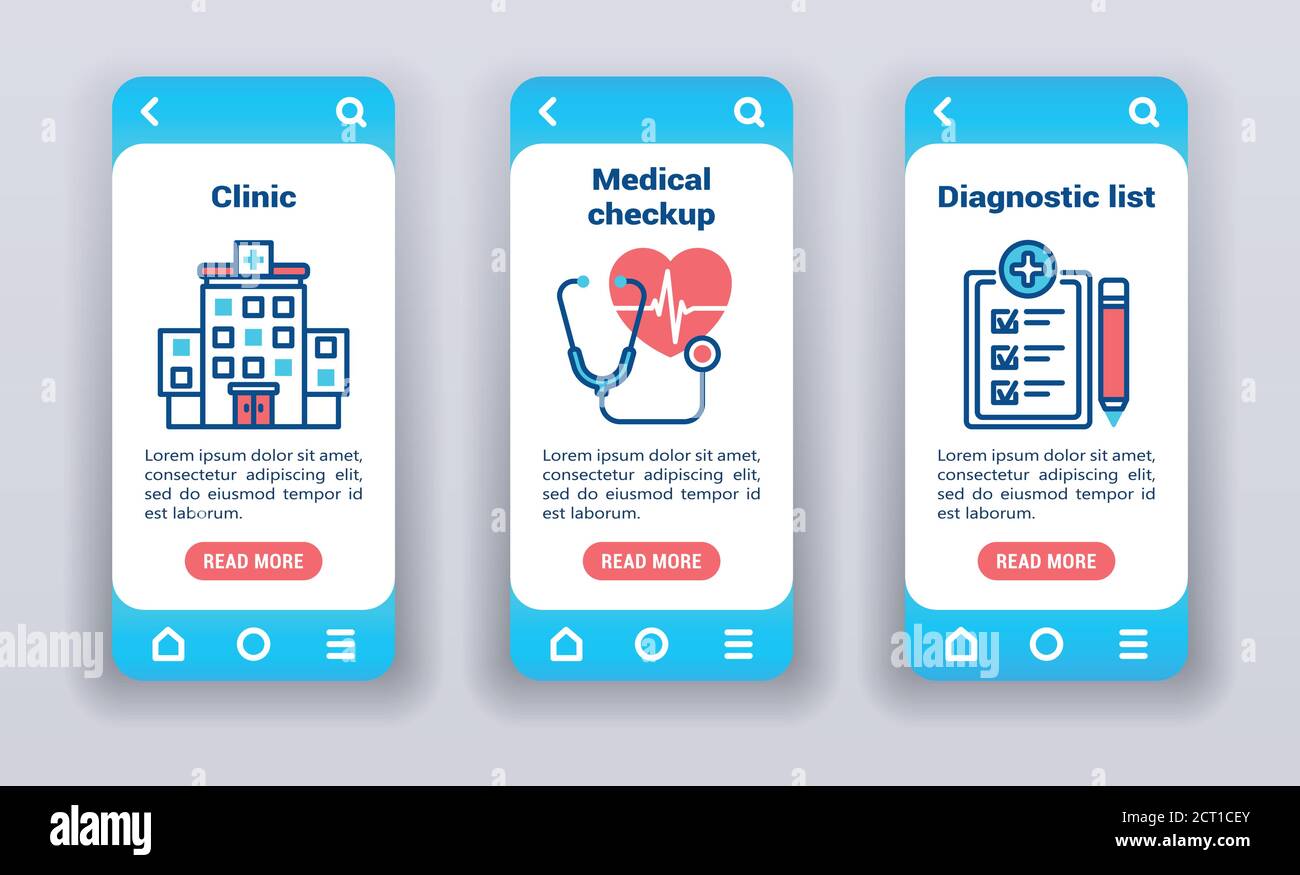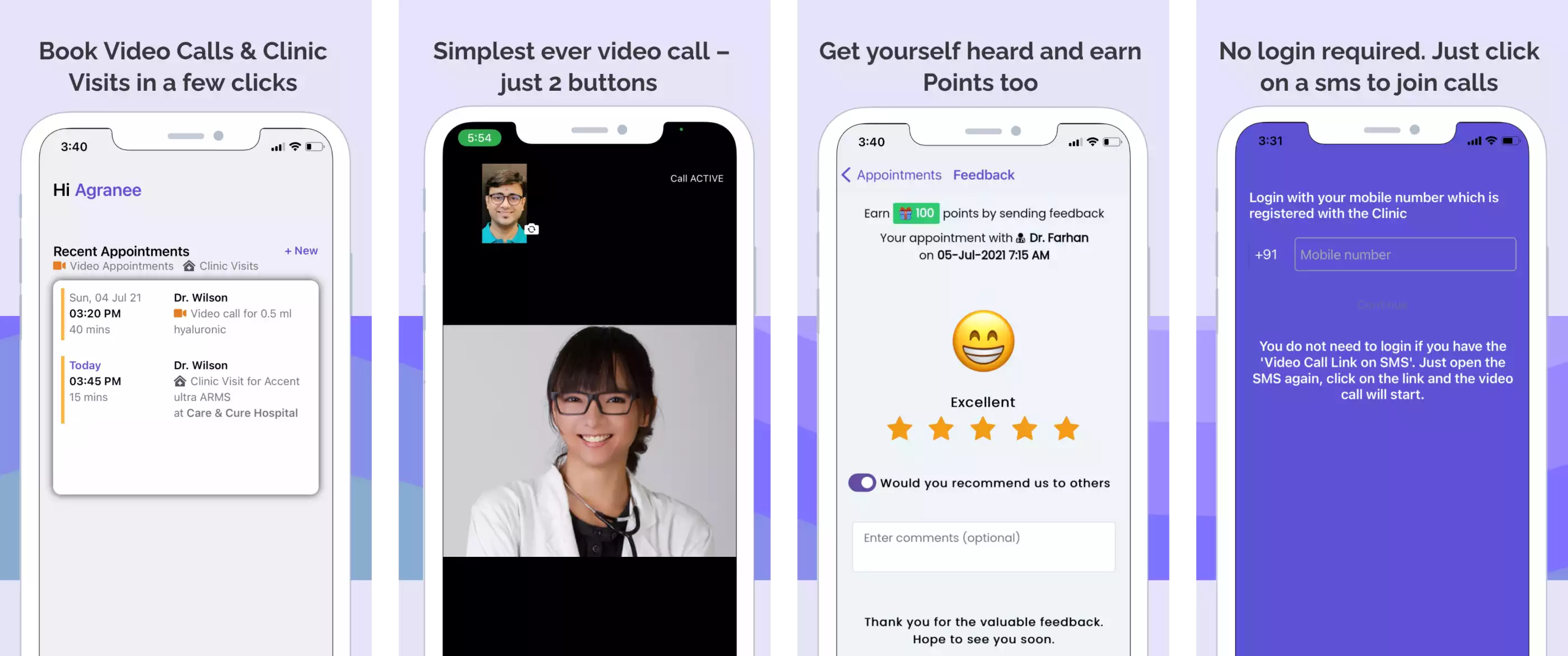Transform Patient Treatment with a Mobile App for Clinics: Leading Features to Take Into Consideration
Transform Patient Treatment with a Mobile App for Clinics: Leading Features to Take Into Consideration
Blog Article
The Future of Health Care: Why Clinics Need a Mobile Application Today
As the healthcare landscape continues to evolve, centers deal with installing stress to adjust to person assumptions for higher comfort and accessibility. The integration of mobile applications can serve as an important method for boosting patient interaction and streamlining operations.
Transforming Patient Expectations
As the landscape of medical care evolves, client assumptions are undertaking a substantial transformation. Today's patients are progressively seeking comfort, availability, and customized care. With the rise of modern technology, specifically mobile applications, individuals now anticipate a smooth combination of health care solutions into their day-to-days live. They want the capability to manage appointments, access clinical records, and communicate with medical care suppliers through their mobile phones, reflecting a change towards an extra proactive strategy to health and wellness management.
In addition, clients are ending up being much more informed and encouraged, frequently looking into treatments and conditions on-line before consultations. This increased understanding is coupled with a demand for transparency in healthcare processes, including expense price quotes and treatment alternatives. Therefore, suppliers are compelled to adapt by adopting digital tools that enhance the patient experience.
The expectation for reliable and prompt interaction has actually never ever been greater, with several individuals thinking about responsiveness an important part of top quality care. mobile app for clinics. In this advancing landscape, health care organizations have to identify these transforming assumptions and take advantage of mobile applications to promote a much more patient-centric method, ensuring that they not only fulfill yet go beyond the standards established by today's informed consumers
Enhancing Person Involvement

Mobile applications assist in interaction between people and doctor, allowing real-time appointment scheduling, tips for medicine adherence, and straight messaging functions. These functionalities not only enhance benefit yet also build a sense of accountability amongst people. Furthermore, mobile apps can provide academic web content customized to specific demands, aiding people better understand their conditions and treatment alternatives.
The assimilation of gamification aspects within health care apps can additionally inspire individuals to participate in healthy and balanced habits, strengthening positive way of living adjustments. By tracking progression and fulfilling success, individuals are much more most likely to stay devoted to their health and wellness goals. Ultimately, enhancing patient involvement with mobile applications results in enhanced health outcomes, better individual fulfillment, and a more joint health care experience. Clinics that prioritize this aspect will likely see a substantial influence on the top quality of care supplied.
Enhancing Center Procedures
Enhancing facility operations is essential for improving process performance and optimizing client care. The execution of mobile applications can dramatically decrease management burdens, allowing doctor to concentrate a lot more on patient interactions. By automating appointment organizing, person check-ins, and payment processes, centers can decrease wait times and enhance overall functional efficiency.
Mobile applications likewise help with real-time access to patient records, allowing healthcare specialists to make informed choices swiftly. This immediacy not only improves the high quality of care however additionally lowers the possibility of errors connected with lost or outdated information. Moreover, leveraging mobile modern technology supports a more orderly strategy to managing client follow-ups and treatment plans, guaranteeing that no essential steps are overlooked.
This allows for a knockout post timely replenishment and assists prevent interruptions in person care due to equip lacks. By integrating these functionalities right into their day-to-day operations, centers can create a much more cohesive and reliable environment, inevitably leading to improved individual outcomes and fulfillment.
Improving Communication Channels
Efficient communication is regularly cited as a foundation of top quality health care distribution. In today's fast-paced medical setting, mobile applications can considerably improve interaction networks between centers, clients, and doctor. By integrating mobile apps right into their procedures, facilities can facilitate real-time communications, ensuring that individuals receive prompt information regarding their appointments, examination outcomes, and treatment plans.
Mobile applications also equip patients to communicate directly with their healthcare groups with protected messaging functions. This straight line of interaction cultivates a feeling of involvement and allows for immediate clarification of issues, which can cause much better adherence to therapy procedures. Press alerts can advise people of upcoming consultations or medicine read what he said routines, reducing no-show rates and improving overall health end results.

Remaining Affordable in Healthcare
In a swiftly evolving health care landscape, companies should focus on innovation and versatility to keep an one-upmanship. The assimilation of mobile applications into medical care solutions is no longer optional; it is crucial for clinics intending to boost patient interaction, simplify procedures, and improve general solution distribution.
As individuals progressively rely upon digital systems for wellness management, facilities that fall short to embrace mobile modern technology threat dropping behind. A well-designed mobile app can provide attributes such as appointment scheduling, telemedicine examinations, and access to medical documents, supplying individuals with ease and cultivating commitment.

Competitors are additionally buying mobile options, so staying ahead requires continual improvement and remaining informed about technological improvements. Clinics have to not only apply mobile applications however also participate in regular updates and improvements. Ultimately, the effective integration of mobile modern technology will identify forward-thinking health care companies and set the criteria for patient-centric care in a digital globe.
Conclusion
To conclude, the integration of mobile applications in facilities is vital to resolve the developing landscape of person assumptions. By enhancing person engagement, simplifying operations, and enhancing interaction networks, clinics can substantially boost health and wellness results. In addition, the adoption of mobile innovation placements facilities to remain competitive in a significantly digital health care environment. Inevitably, the strategic implementation of mobile applications represents a vital step toward providing accessible and customized health care, thus satisfying the requirements these days's equipped individuals.
Inevitably, improving client involvement with mobile applications leads to enhanced health end results, higher client complete satisfaction, and a more collaborative medical care experience.Mobile apps also help with real-time access to person documents, enabling medical care specialists to make educated decisions promptly. In today's hectic medical setting, mobile applications can substantially enhance interaction channels between facilities, clients, and healthcare carriers.Mobile apps also equip patients to interact directly with click over here their healthcare groups through safe and secure messaging attributes. Eventually, the critical application of mobile applications represents a critical step towards delivering available and tailored health care, therefore fulfilling the requirements of today's empowered individuals.
Report this page